For my thirtieth birthday last September, I took myself on a two-night solo camping trip for the first time. I had heard so many positive things about Nordegg, Alberta, a small town at the foothills of the Rocky Mountains. Needing a weekend in nature, and wanting to test out solo camping, I decided to see it for myself. I was expecting a weekend of tranquility and incredible views from the couple of hikes I had planned, but I wasn’t expecting the impacts of climate change to follow me there.
I camped in Preachers’ Point Recreation Area at Abraham Lake, a man-made lake near Nordegg that was created due to the construction of a dam downriver from it. This is one of the bluest bodies of water I had ever seen – the photos below do not do this lake justice. Waking up each morning to that view was incredible.
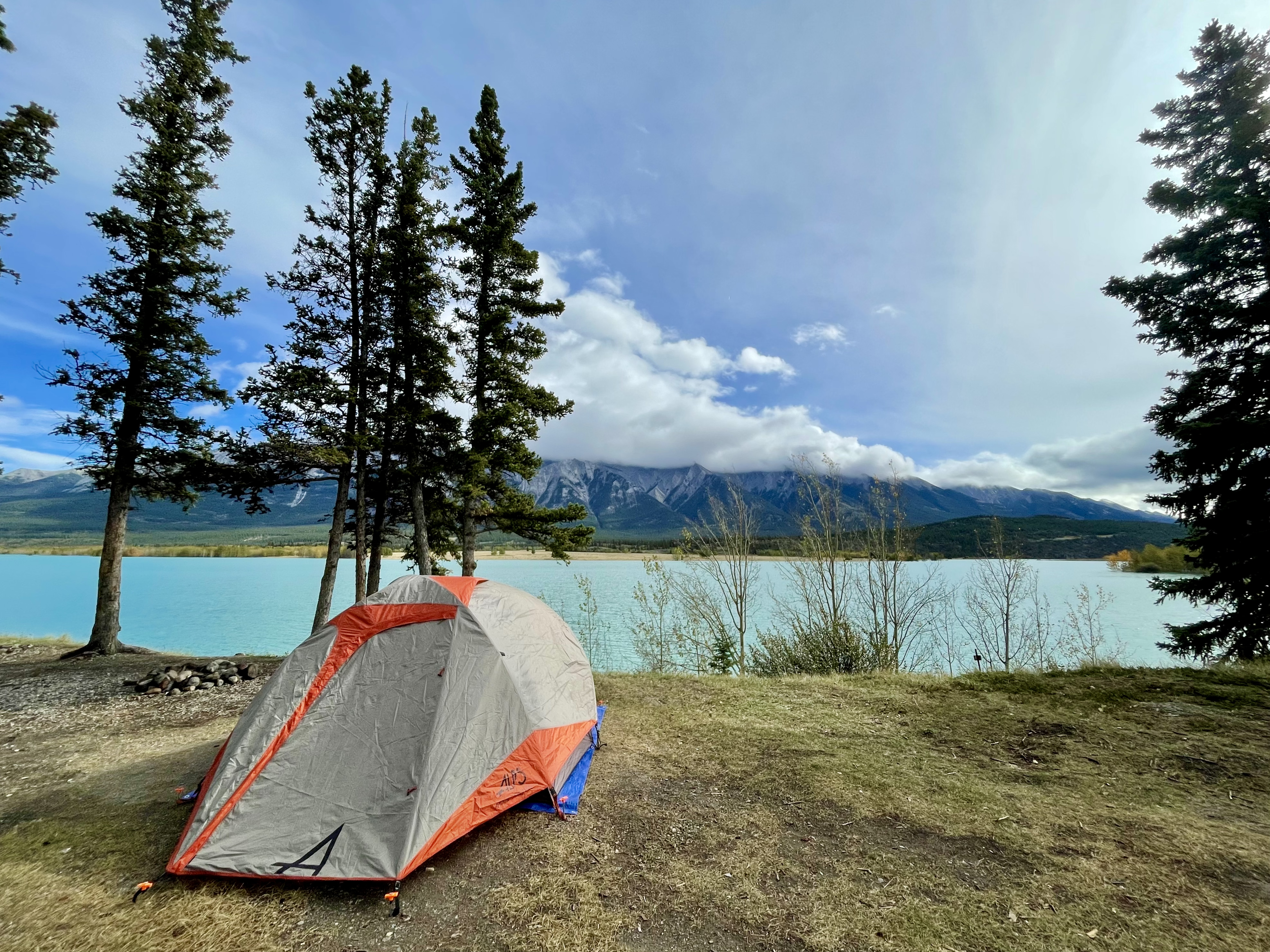



After setting up camp my first afternoon (and taking a hundred photos of the lake), I drove a short distance down the road to hike to Siffleur Falls, a waterfall set within the Kootenay Plains Ecological Reserve. I had planned an easier hike this first day to warm myself up for a tougher one the next. The hike up took just over an hour with less than 100 m in elevation gain. The weather for early September was incredible, allowing me to take some gorgeous photos of the falls. Back at camp, I made a big dinner and hit my sleeping pad early to prepare for my hike the next day.
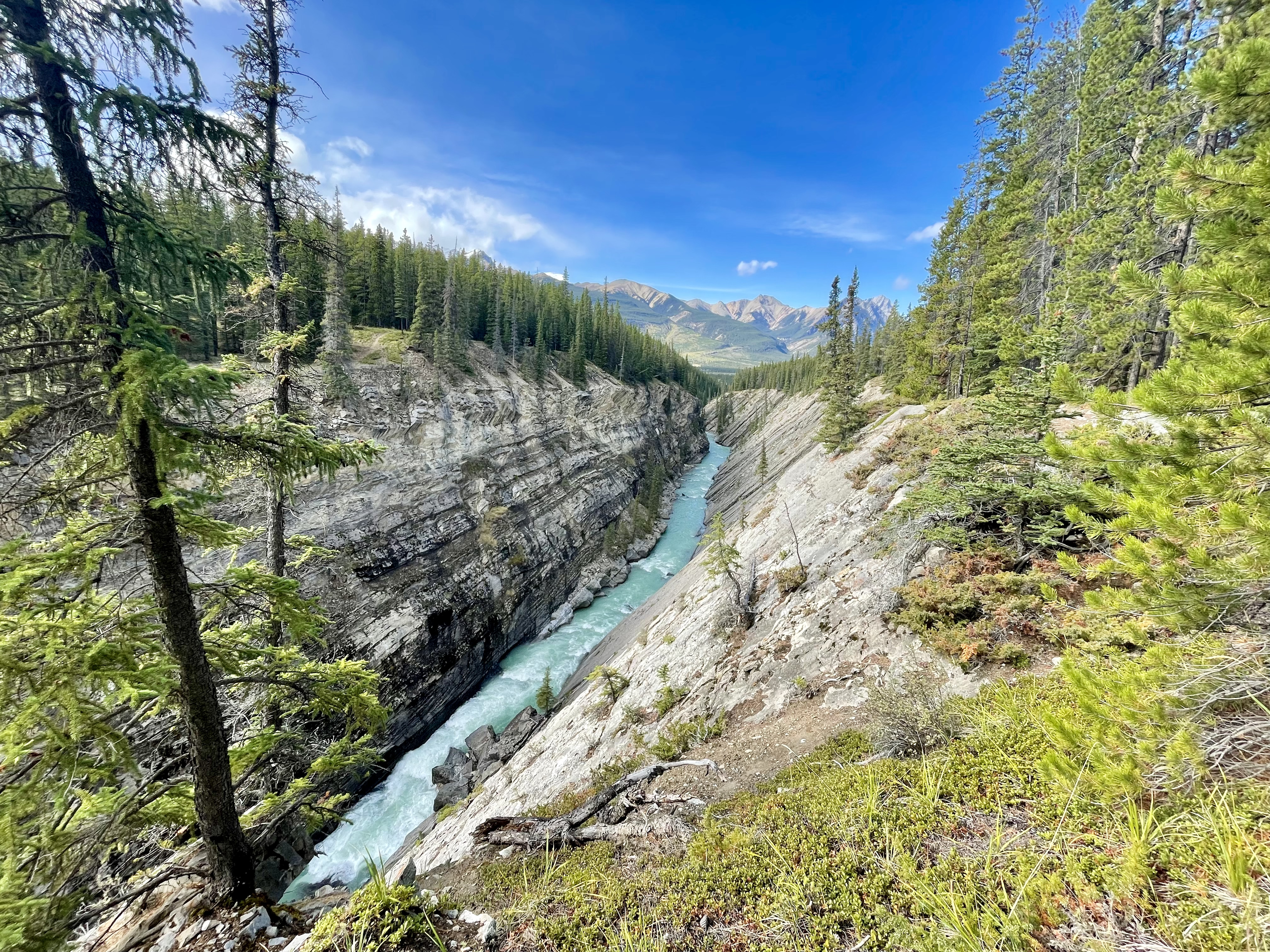


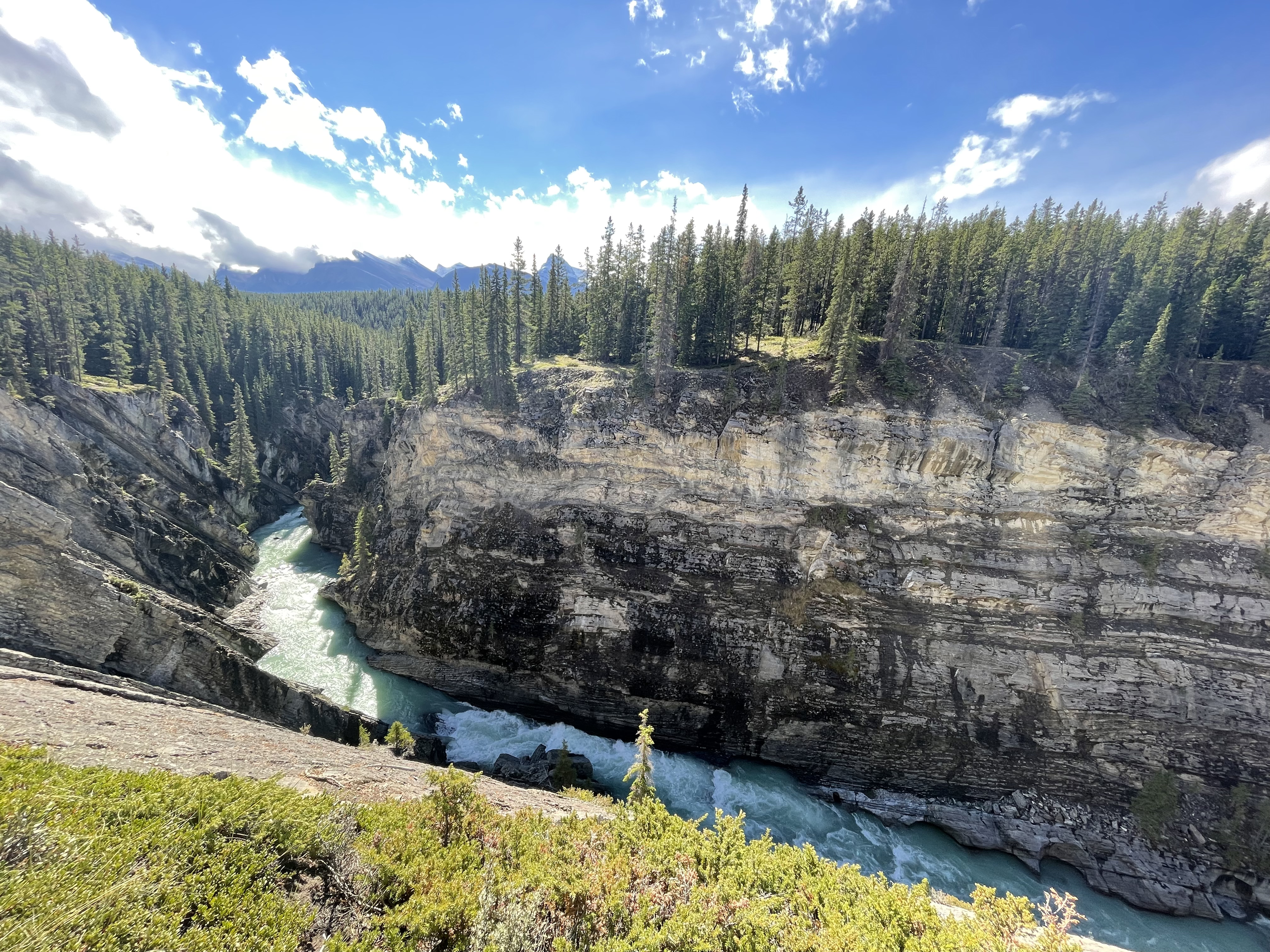

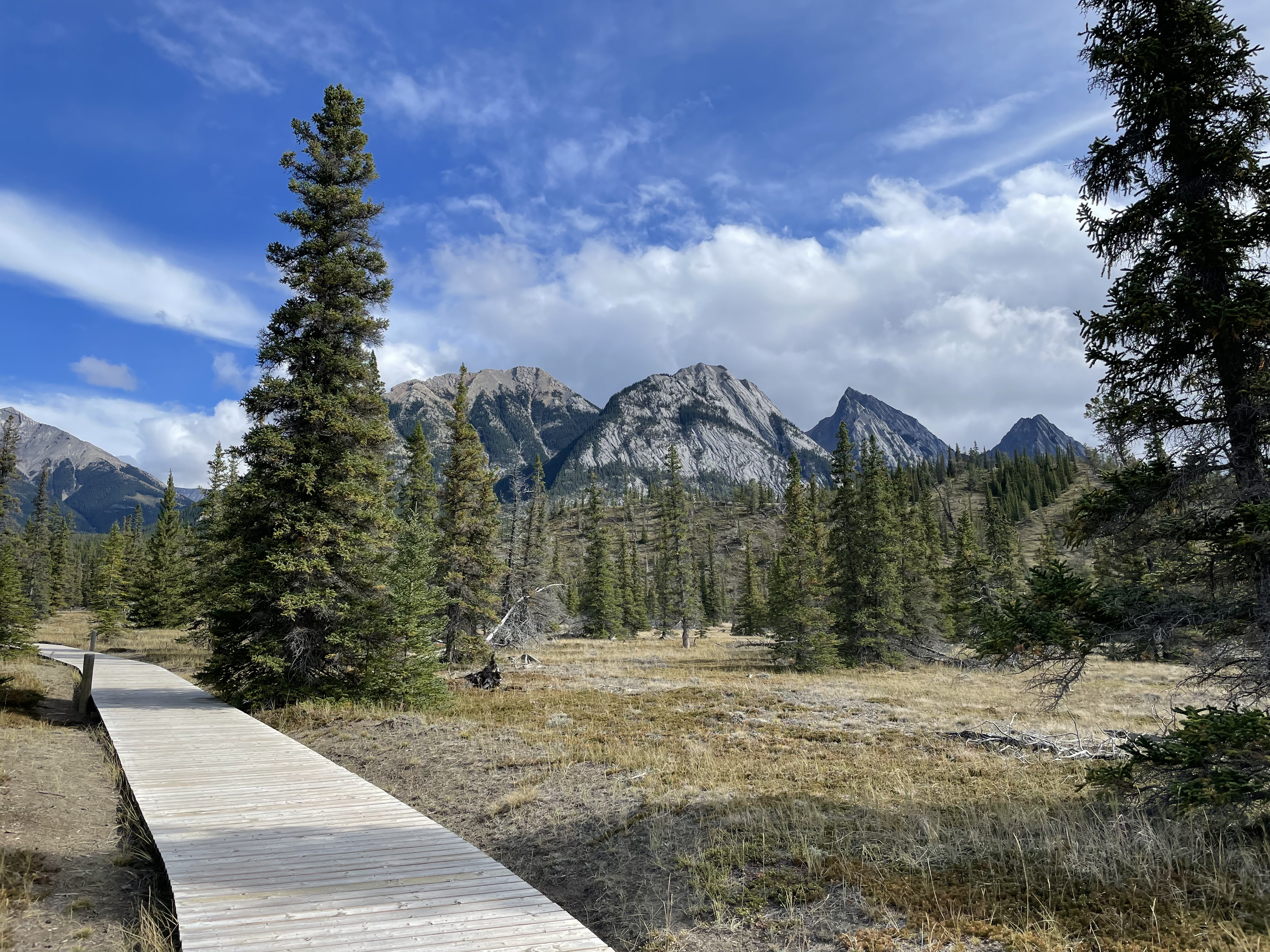
After a large breakfast the next morning, I packed some extra layers and headed out. About an hour west of my campsite, in the Rocky Mountain Range, lies Saskatchewan Glacier, accessible via a hike to Parker Ridge. This relatively steeper hike took me almost an hour to get to the summit and had a little over 300 m in elevation gain. Luckily, I had packed my slush pants and an extra jacket because I hit snow immediately. The view from the top of this ridge was insane – I had never seen such a picturesque glacier in person. And there’s nothing quite like the feeling of reaching that End of Trail sign after a hard hike.
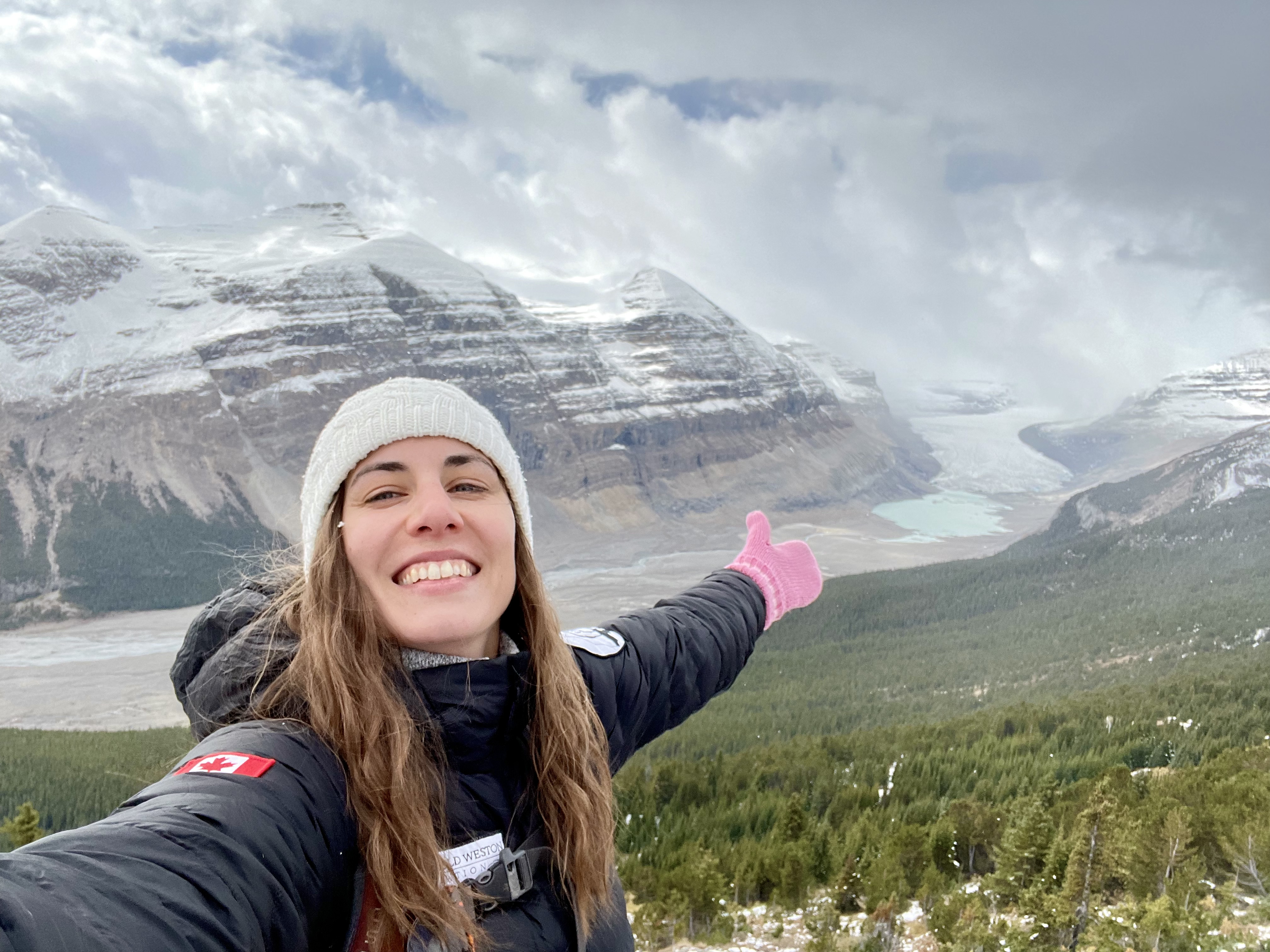
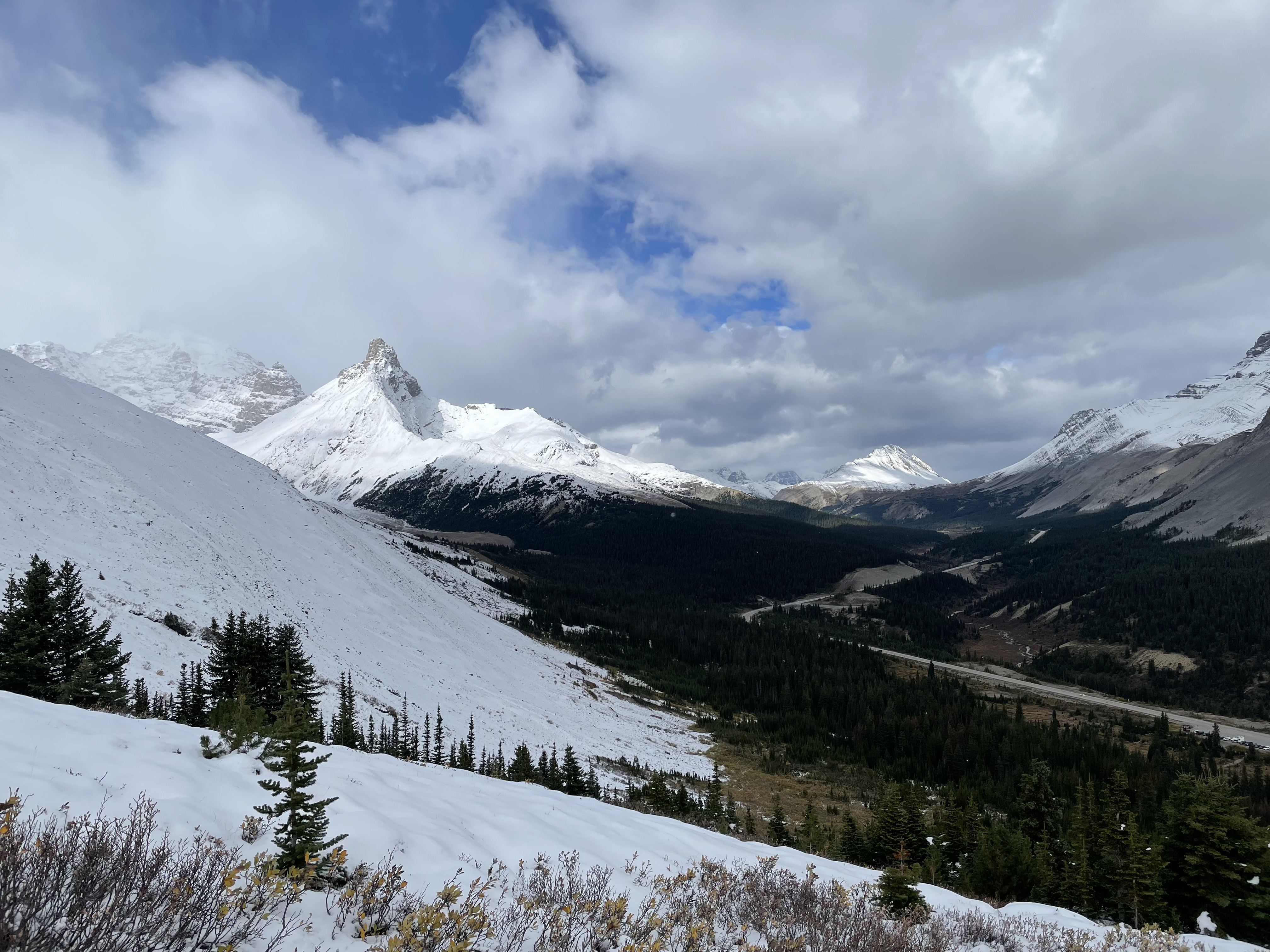


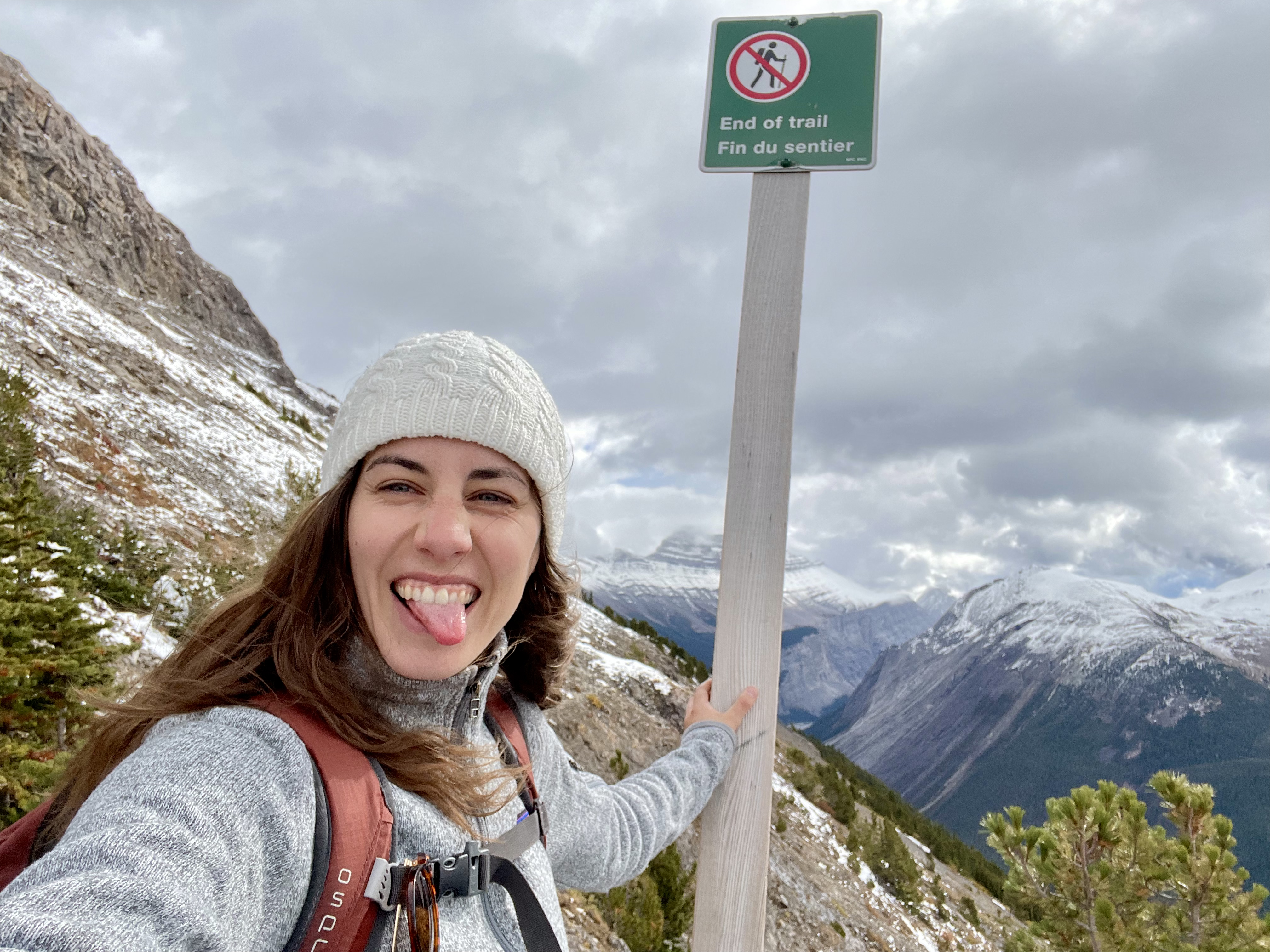
Exhausted after the hike, I had dinner and went to bed early. The next morning, I packed up camp and headed home, making a quick pit stop to see Crescent Falls on the way.

But what about climate change?
It wasn’t until I was looking at my photos after the trip that I started to wonder about Saskatchewan Glacier. Knowing that climate change is causing glaciers to melt in many areas1, I wondered if our warming climate was impacting even Canada’s epic Rocky Mountains. Turns out, my intuition was correct. According to this news article, in 2021 alone Saskatchewan Glacier melted back 10 metres. The heat dome and wildfires exacerbated the impacts of climate change on this glacier last year. As part of the Columbia Icefield, this region is being jointly studied by Hakai Institute and the University of Northern British Columbia. The team uses satellite imagery to study the changes in this glacier, as well as others across North America, over time and unfortunately the rate of ice loss in the Columbia Icefield has been accelerating in recent years.
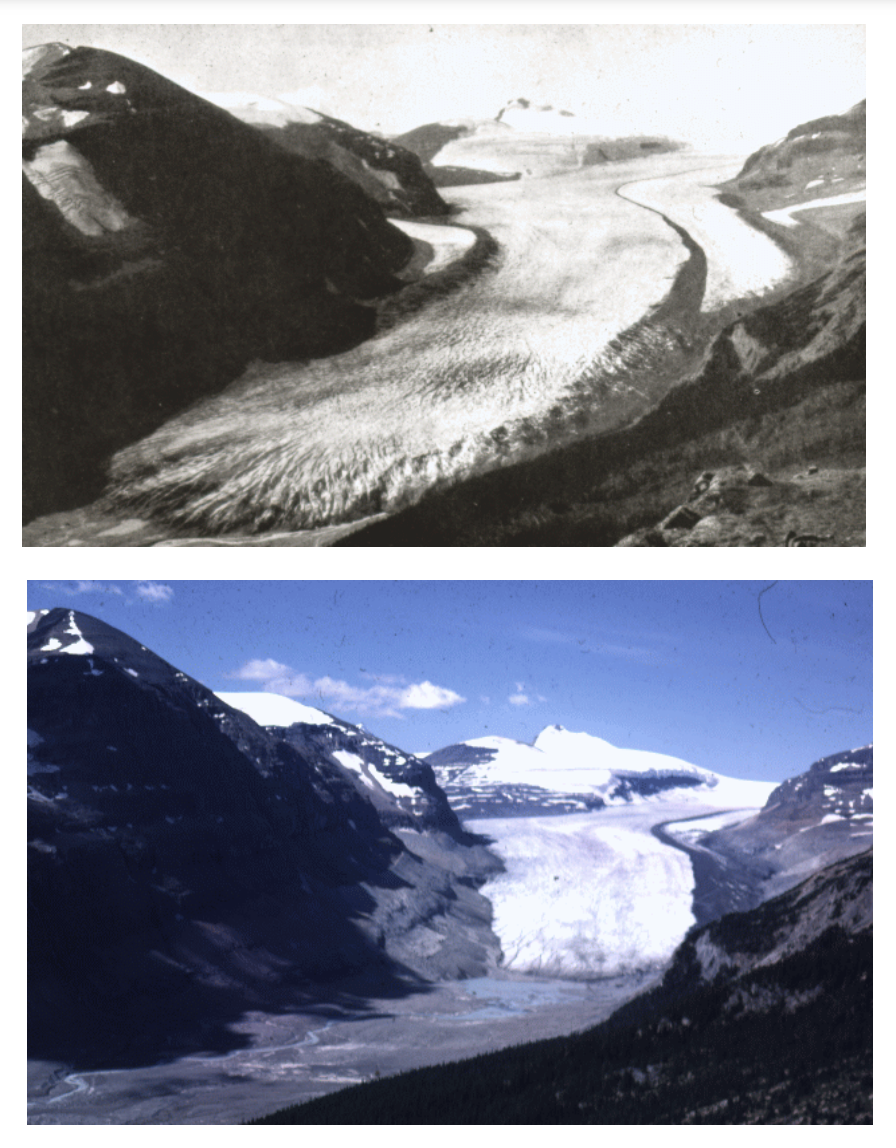
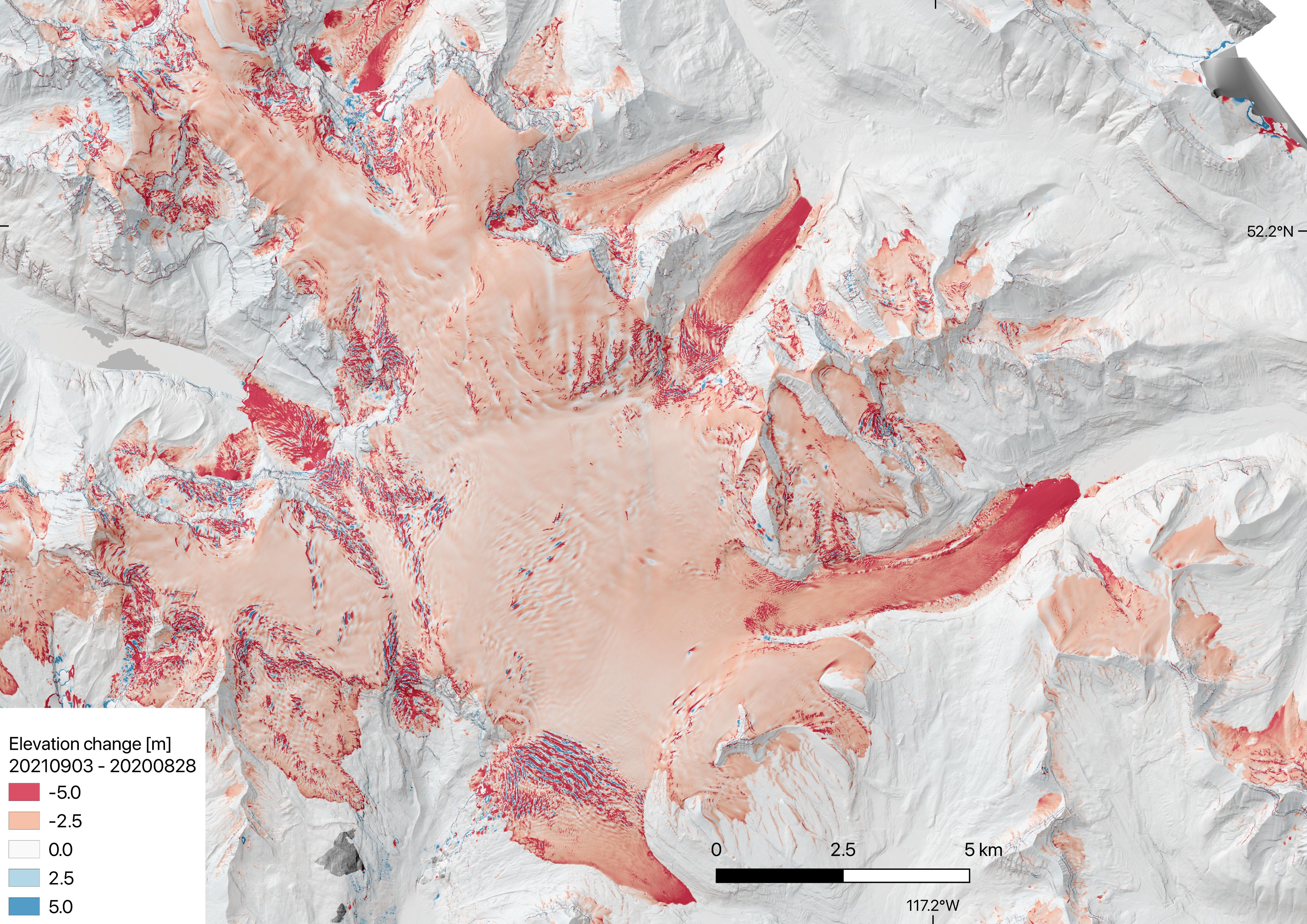
The photographs on the left are from a report by Dr. Dan Smith for Parks Canada2. The top was taken in 1924 and the bottom in 1985 – they clearly illustrate the loss of ice over time. sThis image on the right is from a Twitter post by Brian Menounos, a glaciologist at the University of Northern British Columbia. It illustrates how much ice has been lost across the Columbia Icefield from August 2020 to September 2021, with darker red showcasing higher ice loss.
Learning about this study reminded me of a conversation I once had with an elderly gentleman about melting glaciers. I was presenting my research at the Telus World of Science Edmonton and this man was trying to explain that melting glaciers could also be a positive thing. He was fascinated by a cave that was recently revealed in BC after a glacier melted away and suggested it was an incredible scientific opportunity for discovery. As much as that might be true, there’s one thing we all have to remember: these glaciers are the headwaters of our drinking water. It is not just a rise in sea level that melting glaciers are causing, but also a significant decrease in the available fresh water that we require for drinking or for our livelihoods1. The Saskatchewan Glacier feeds the North Saskatchewan River, a massive river system that starts in western Alberta and spans across the province and Saskatchewan, finally ending in Lake Winnipeg. It brings water to countless farms and communities along the way. The melting of its headwaters should be a concern to all of us, but especially to those that depend on it.
When I explained the impact of melting glaciers on drinking water the gentleman thanked me for the information. He hadn’t actually considered the negative impacts of melting ice, so he gathered some of my printouts about climate change and promised that he’d spend more time thinking about it. My hope is that you do as well – spend more time thinking about climate change, that is. When you’re out for a hike or spending time in nature, think about how the natural spaces you enjoy may be impacted by our carelessness. Think about how your drinking water, your livelihood, or that of your loved ones, may be impacted if we continue to see the impacts of climate change affect our natural world. If we all take a step back and think about how climate change may impact us and our loved ones directly, maybe then we’ll all start to demand that those in power take urgent action.
Sources
- Intergovernmental Panel on Climate Change. (2022). Summary for Policy Makers. In the Sixth Assessment Report: Impacts, Adaptation and Vulnerability.
- Smith, D. (1999). Dendroglaciological investigations at Saskatchewan Glacier, Banff National Park: A preliminary report based on field investigations in September, 1999. University of Victoria.
Additional Information
- See my Resources page to learn more about climate change and how to help
- Click the links throughout this post for more information (black text links to other webpages)
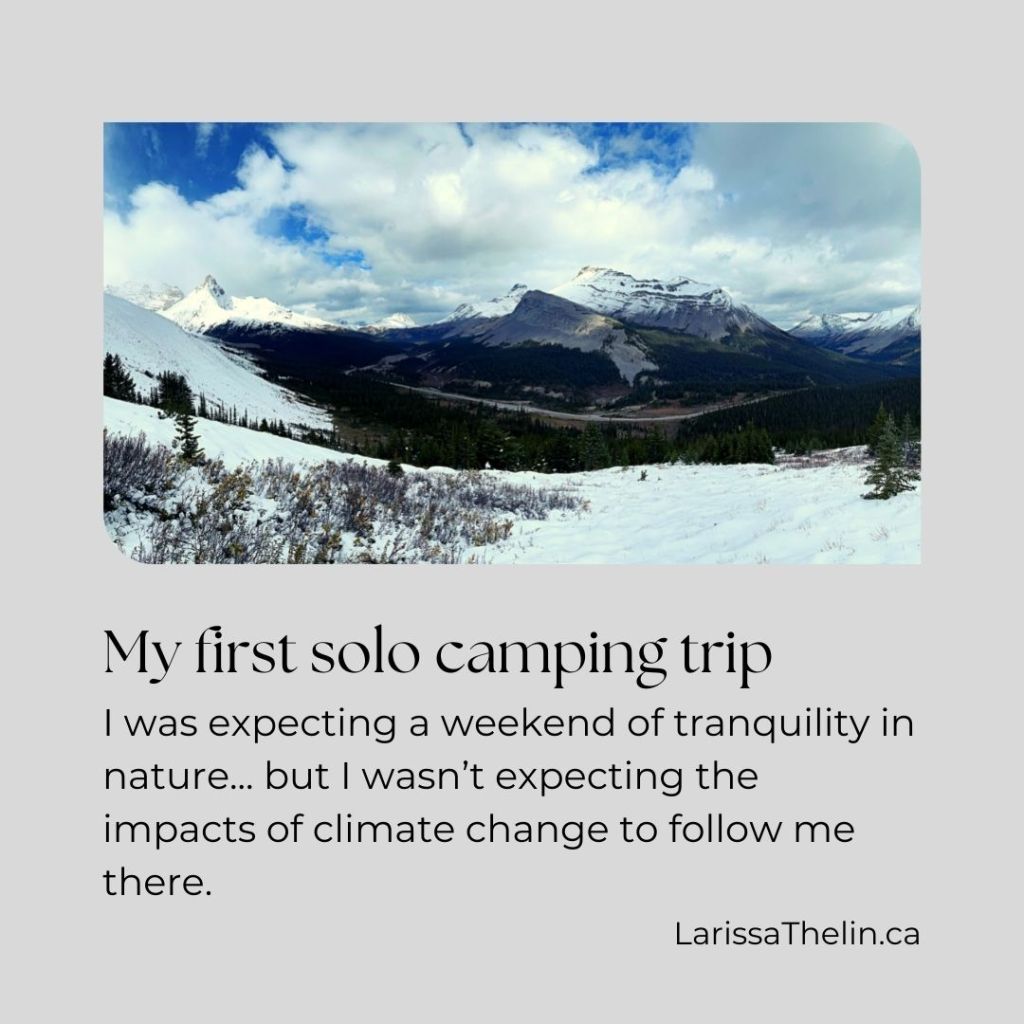
2 responses to “My first solo camping trip”
Great blog post Larissa! It’s getting harder for me to get out to the back country so it’s great to see you doing so. Great also to see my retired MSc. supervisor, Dan Smith’s work is still relevant. Maybe mine will be too in 20 years!
LikeLike
Thanks for reading it! Nice to hear from you!
LikeLike